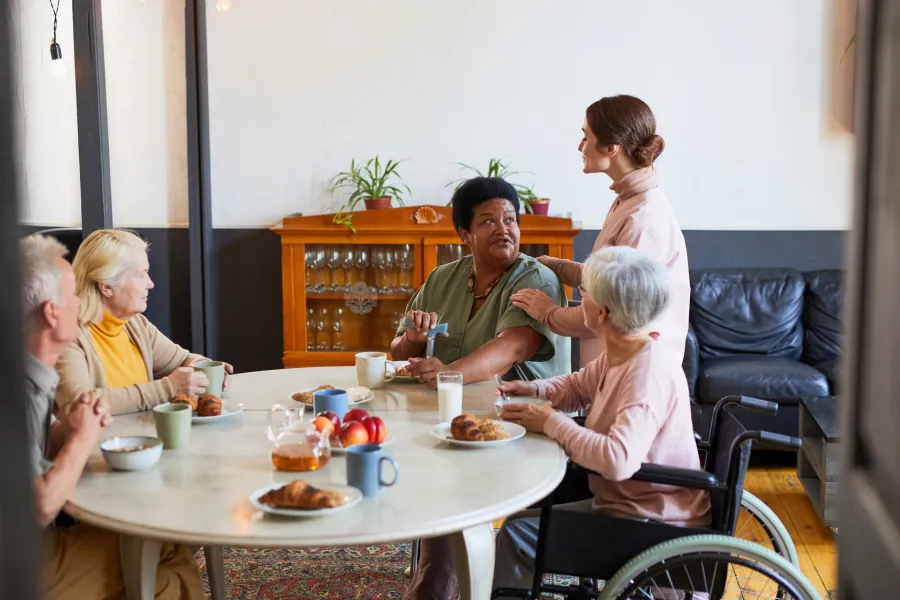
Cultivating Cultural Sensitivity in Home Care: A Guide to Providing Personalized Care
Cultural sensitivity is a critical component of providing high-quality home care, especially in our increasingly diverse society. Understanding and respecting the cultural beliefs, values, and practices of care recipients is not only a matter of respect but also a key factor in fostering trust and improving care outcomes.
This post will explore the importance of cultural sensitivity in home care and offer practical tips for caregivers and families.
The Importance of Cultural Sensitivity in Home Care
In home care settings, cultural sensitivity refers to the awareness, understanding, and respect for the cultural backgrounds of care recipients. It involves recognizing that cultural beliefs can significantly influence an individual’s health behaviors, preferences for care, and expectations of their caregivers.
For example, a client’s cultural background might affect their dietary preferences, religious practices, or communication style. A caregiver who is culturally sensitive will be aware of these factors and adapt their care approach accordingly. This adaptation is essential for creating a supportive and respectful care environment that meets the unique needs of each individual.
Building Trust Through Cultural Sensitivity
Trust is a foundational element of any caregiver-client relationship. When caregivers demonstrate cultural sensitivity, they are more likely to build trust with their clients. This trust is crucial for effective caregiving, as it encourages open communication, cooperation, and compliance with care plans.
For instance, a caregiver who respects and accommodates a client’s religious practices—such as prayer times or dietary restrictions—will likely foster a stronger, more trusting relationship. This trust, in turn, can lead to better care outcomes, as the client feels more comfortable and respected.
Practical Tips for Culturally Sensitive Care
1. Educate Yourself About Different Cultures
Caregivers should take the time to educate themselves about the cultural backgrounds of their clients. This education can involve formal training provided by home care agencies or independent learning about the specific cultures they may encounter in their work. Understanding cultural customs, traditions, and values will enable caregivers to provide more personalized and respectful care.
2. Communicate with Respect
Effective communication is key to culturally sensitive care. Caregivers should be mindful of language barriers and, if necessary, use translation services or seek help from family members who can translate. It’s also important to be aware of non-verbal communication cues, as these can vary significantly across cultures. For example, eye contact, personal space, and gestures may have different meanings in different cultures.
3. Involve Family Members in the Care Process
Family members often play a crucial role in the care of individuals from culturally diverse backgrounds. Involving family members in care planning and decision-making can help ensure that the care provided aligns with the client’s cultural values and expectations. Family members can also offer valuable insights into the client’s cultural practices and preferences, helping caregivers tailor their approach.
4. Respect Religious and Spiritual Practices
Religion and spirituality are important aspects of many people’s lives and can significantly influence their health and well-being. Caregivers should respect and accommodate the religious practices of their clients, whether this involves facilitating prayer times, observing dietary restrictions, or supporting participation in religious rituals. Being flexible and open to these practices will help clients feel respected and supported.
5. Be Open to Learning and Adaptation
Cultural sensitivity is an ongoing learning process. Caregivers should remain open to learning from their clients and their families. This learning may involve asking questions, listening carefully, and being willing to adapt care practices to better meet the needs of the client. Flexibility and a willingness to change are key components of culturally sensitive care.
Challenges and Overcoming Barriers
While cultural sensitivity is essential, caregivers may encounter challenges such as language barriers, differing cultural expectations, or a lack of familiarity with certain cultural practices. Overcoming these barriers requires patience, empathy, and a commitment to continuous learning.
Every client is an individual, and their cultural background is a part of who they are. By being culturally sensitive, you're not just providing care; you're building a relationship based on trust, respect, and understanding.
One effective strategy is to establish clear and open lines of communication with the client and their family from the outset. This communication helps set expectations, clarify any misunderstandings, and ensure that the care provided is in line with the client’s cultural values.
Home care agencies can also support their caregivers by providing ongoing cultural competency training and access to resources that help them navigate cultural differences. Agencies that prioritize cultural sensitivity in their training programs are better equipped to provide high-quality, personalized care to clients from diverse backgrounds.
